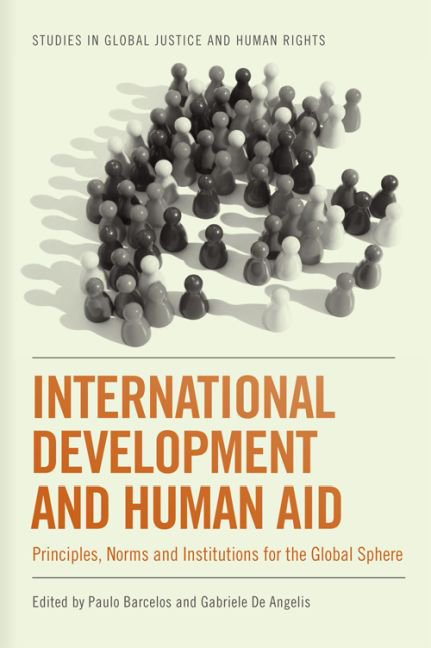Book contents
- Frontmatter
- Contents
- List of Contributors
- Acknowledgements
- 1 Justice in a Complex World: An Introduction
- Part I Human Rights and the World Economy: Questions of Scope
- Part II The Applicability of Global Principles – Some Contemporary Dilemmas
- Part III Justice and International Institutions
- 7 Narrow Versus Comprehensive Justification in Humanitarian Aid: A Case Study of the CERF
- 8 Global Justice and the Mission of the European Union
- Index
7 - Narrow Versus Comprehensive Justification in Humanitarian Aid: A Case Study of the CERF
from Part III - Justice and International Institutions
Published online by Cambridge University Press: 26 April 2017
- Frontmatter
- Contents
- List of Contributors
- Acknowledgements
- 1 Justice in a Complex World: An Introduction
- Part I Human Rights and the World Economy: Questions of Scope
- Part II The Applicability of Global Principles – Some Contemporary Dilemmas
- Part III Justice and International Institutions
- 7 Narrow Versus Comprehensive Justification in Humanitarian Aid: A Case Study of the CERF
- 8 Global Justice and the Mission of the European Union
- Index
Summary
INTRODUCTION
Virtually all humanitarian action is constrained either directly or indirectly by the international humanitarian system – a complex web of UN resolutions, international institutions (including funding mechanisms), norms, objectives, rules, regulations, codes of practice and standard operating procedures. This chapter is interested in those who are (partly) morally responsible for this system. That is to say, it is interested in what those who are (partly) morally responsible for this system owe to those who are subject to it.
Putting this issue in terms of ‘moral responsibility’ has an important implication: that those who are (partly) morally responsible for the international humanitarian system can be legitimately called upon to justify it. Or, to be more precise, contributors to the international humanitarian system can be legitimately called upon to answer for particular parts of the system reflecting the particular contributions they make.
When I say that a justification is owed to all those who are ‘subject to’ the international humanitarian system I mean all those who find themselves caught up in humanitarian emergencies and who have the vagaries of this system and its constituent parts imposed upon them. I have in mind not only those who actually receive humanitarian relief but also those who do not. The latter group includes, for example, all those who would have benefited from humanitarian projects proposed by United Nations (UN) frontline agencies, but who do not do so because of unsuccessful applications by those agencies for financing from international emergency response funds, or all those who would have benefited from humanitarian projects proposed by non- governmental organisations (NGOs) and international nongovernmental organisations (INGOs), but who do not do so as a result of failed or non-existent sub-agreements between those (I)NGOs and UN frontline agencies.
What type of justifications are those responsible for the international humanitarian system obligated to provide? Consider the distinction between narrow and comprehensive justification. Whereas a narrow justification is one that answers the call for justification in only certain respects whilst leaving one or more ensuing question unanswered, a fully comprehensive justification is one that can answer the call for justification for all ensuing questions.
- Type
- Chapter
- Information
- International Development and Human AidPrinciples, Norms and Institutions for the Global Sphere, pp. 163 - 195Publisher: Edinburgh University PressPrint publication year: 2016

